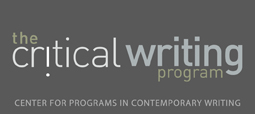Legal Studies
An Overview of the Discipline
Students may decide to pursue a secondary Wharton concentration or a minor while at Penn. Among the many options available is Legal Studies and Business Ethics. Students can relate their legal studies and business ethics concentration to their primary field, by taking courses relevant to finance, human resources, international business or marketing. However, writing in the legal realm is a task that many students may not yet be familiar with.
Writing in the Discipline
Goal
Finding the answer to a good, relevant question makes for an interesting, timely, and relevant paper. Depending on the subject question, e.g. criminalization of harming fetuses or the collapsed home mortgage market, a writer may either advance or criticize an existing position or define a problem and present a solution to that problem.
Reasoning
There are various types of writing in legal scholarship including empirical writing which involves researchers conduct experiments to answer a question and normative writing which involves experts searching for the morally right answer to a question. Work in the legal discipline is largely justificatory, because readers must be convinced that a certain approach or belief is correct. Establishing credibility as a writer plays a crucial role in this discipline. Writers should demonstrate knowledge and mastery of relevant literature, casework, and statutes.
Evidence
Evidence in the legal discipline tends to be text based. One way to establish credibility is by carefully citing those who have written something related to what you've written. Writers in legal studies should demonstrate familiarity with what has already been written and published. There is a special field in Law, Law and Economics, that more heavily integrates data-based evidence.
Authorship
Authorship in the legal discipline is more individualistic than collaborative. In the words of Professor Phillips, "lawyers are a lonely group." Writers will take the lead in what they want to write. There are cases of co-authorship, and, throughout the discipline, there is a spirit of mutual assistance.
Claims
Your claim should be something relevant that has not been said before. Given the heavy influence of other writers on legal writing, an author must demonstrate a mastery of their peer writers' works in order to have credibility.
Writing Tips
The Writing Process
The beginning of a strong paper requires proper education. Writers must be familiar with the issues discussed and any existing literature that relates to these issues. Unlike other fields, Law makes use of student-reviewed journals, so authors must be aware of their student and expert audience.
Writers can expect to go through multiple drafts. It is standard, formally and informally, to bring drafted articles to peers. These peers may include colleagues in a department or people who are familiar with this exact topic. It is also common to present papers at colloquiums or conferences before publication.
Common Errors
- Advancing assertions that the student fails to substantiate with any kind of argument
- Making logically flawed arguments to support a conclusion
- Mischaracterizing the account of the author they are critiquing
- Stating an opinion without supporting it
Style
Many legal writers can become consumed by dense, legal jargon. Professors appreciate a crisp, succinct writing that ensures clarity without excessive wordiness.
Genre
Typical Student Assignments
In legal studies courses, students are often asked to do a reading and research a topic. They should arrive at an opinion regarding the topic. Visit the professors's web pages for more information regarding student assignments.
© 2013-2014 The University of Pennsylvania
Meet the Professors

Professor Georgette Chapman Phillips
"Writing a paper is like having a baby. It takes approximately 9 months, from my perspective. By far the most fun is the conception because it's so exciting..." More...

Professor Amy Sepinwall
"If I were the master of the universe, what would I say?" More...
